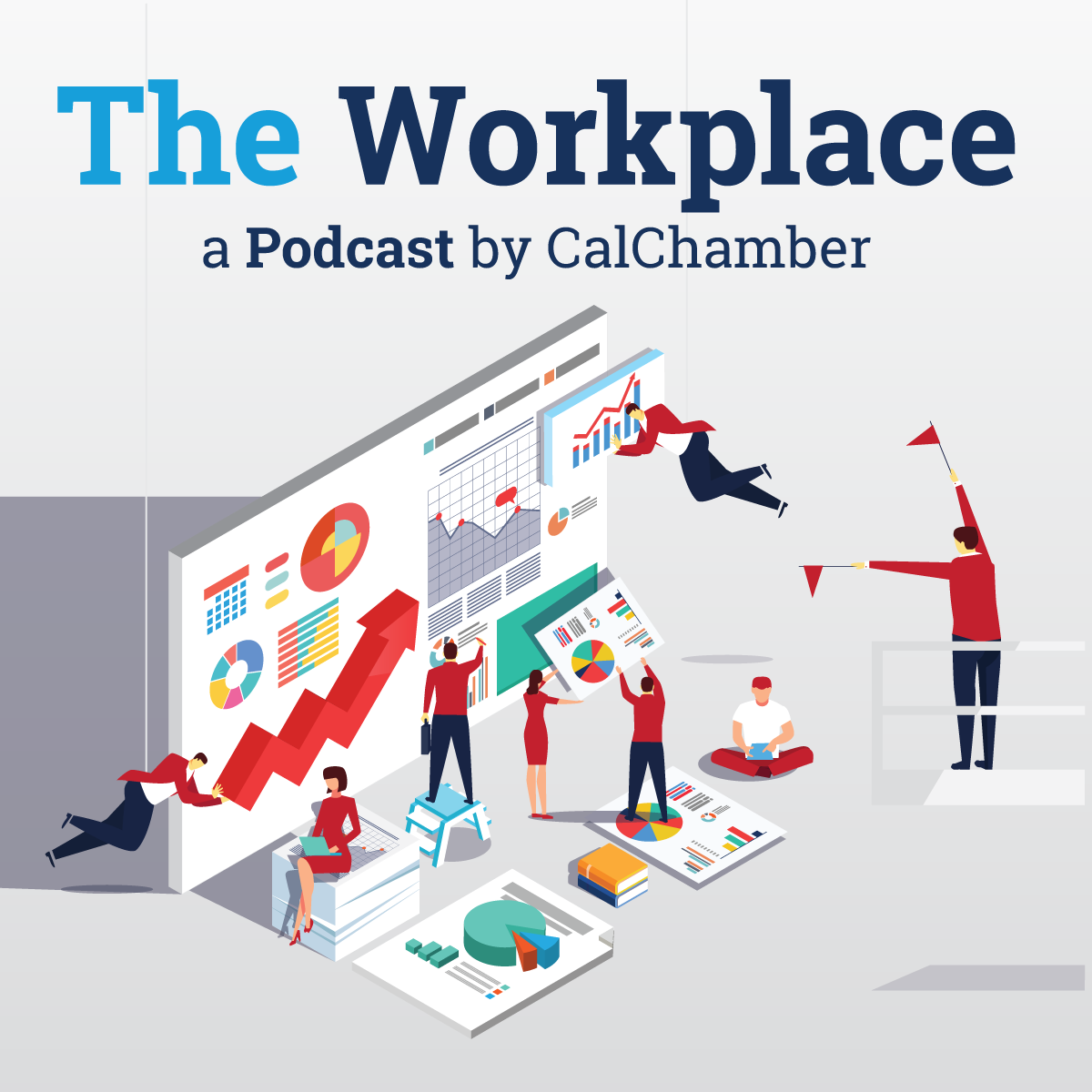
In Episode 170 of The Workplace podcast, employment law expert Matthew Roberts and CalChamber Policy Advocate Ashley Hoffman discuss a recent court victory for employers involving the use of arbitration agreements.
In the podcast, Roberts explains that on February 15, the Ninth Circuit U.S. Court of Appeals issued a long-awaited decision in Chamber v. Bonta. The ruling invalidates a California law that prohibited employers from requiring a California employee to sign an arbitration agreement as a condition of employment.
AB 51 Lawsuit History
Hoffman discusses the law, AB 51, and its history. Passed in 2019, the measure was supposed to take effect on January 1, 2020. But, says Hoffman, the law never took effect due to litigation.
A coalition of businesses led by CalChamber filed a lawsuit alleging that AB 51 violated the Federal Arbitration Act. FAA is a federal law that favors arbitration as a dispute resolution forum. Whenever a state law makes arbitration harder, it can violate the FAA’s intent and that was CalChamber’s position in filing the lawsuit. Ultimately, the trial court agreed with CalChamber and the law didn’t take effect as intended on January 1, 2020.
Hoffman then explains that the state of California appealed the trial court’s decision to the Ninth Circuit and in a split decision, the Ninth Circuit overturned the trial court decision and reinstated AB 51. In response, the CalChamber and its business coalition then asked for an en banc review of the law by a larger panel of the justices on the Ninth Circuit. While that request was pending, the law remained unenforceable.
In an interesting twist, says Hoffman, instead of granting en banc review, the original three justices withdrew their opinion and issued a new one with one justice switching sides, and the new decision was 2-1 to affirm the trial court’s ruling invalidating AB 51.
Problems with Law
Roberts and Hoffman discuss the underlying problems with AB 51. According to Hoffman, the real issue was AB 51 “discriminating” against arbitration agreements and criminalizing the act of requiring employees to sign arbitration agreements as a condition of employment.
Roberts says that one of the interesting aspects of the law was the fact that it criminalizes the use of the agreements but once they are in place, they still are enforceable.
This created an illogical circumstance where an employer committed a crime by requiring the execution of an arbitration agreement, but the employer still was able to enforce the fruits of its crime. Roberts says this “bizarre situation” was likely identified as ridiculous when examined by the court.
Arbitration Agreements
Roberts then pivots to a discussion of where things stand after the decision. Hoffman says that while the state of California may request their own en banc review or appeal directly to the Supreme Court, for now employers can continue requiring mandatory arbitration agreements for their California employees as a condition of employment.
Adds Hoffman, “arbitration is often a more cost-effective and efficient means of resolving an employment dispute than in the courts.” Allowing employers to continue pursuing this avenue is a major win because it is better for employees and employers.
Roberts then discusses compliance reminders for employers in the area of arbitration agreements. Says Roberts, “employers cannot just create any kind of agreement.” In some instances, arbitration agreements will be unenforceable if they aren’t drafted correctly and that is why it is critical that employers have their agreements reviewed by counsel. “Agreements can still be unenforceable if … the content is unfair,” says Roberts.
Future of Challenges
Roberts then asks Hoffman about the future of challenges to mandatory arbitration agreements in the California Legislature. Hoffman responds that these agreements will continue to be opposed by the plaintiff’s bar and already a bill has been introduced this year that takes aim at arbitration.
Says Hoffman, “Arbitration agreements are vilified in the Legislature because they are seen as pro-employer.” Hoffman says CalChamber and employer groups highly disagree with that notion because there is data that shows that employee claimants often win more and spend less time in litigation, coming out with higher awards.
“This is not the end,” says Hoffman. “Arbitration will continue to be a hot topic for years to come.”

